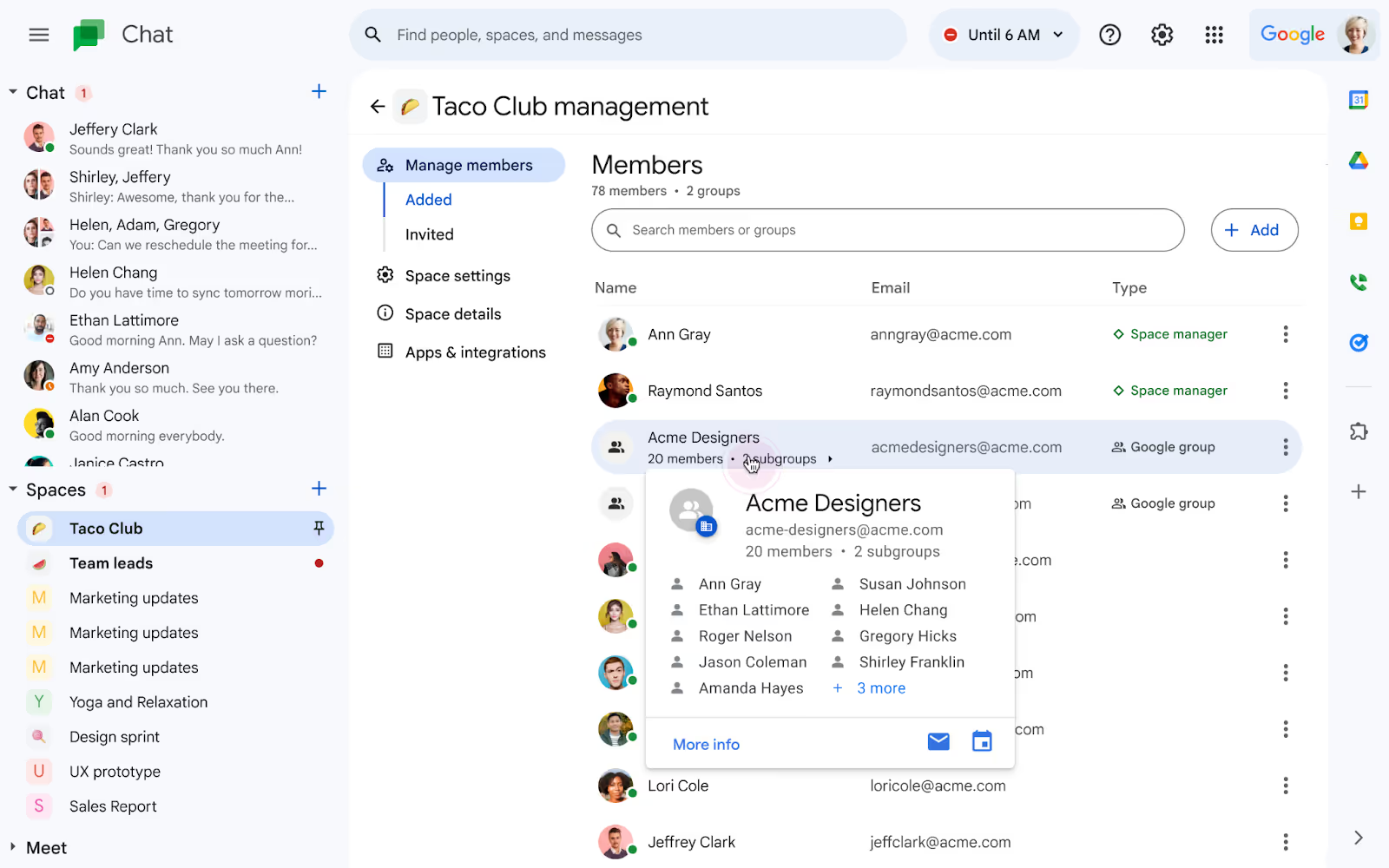Email overload is a common challenge in professional settings, often leading to missed opportunities and decreased productivity. Delegating emails to an executive or virtual assistant can significantly help manage this influx, but it raises questions about maintaining oversight and ensuring important messages are handled appropriately. How can you delegate effectively without losing track of crucial communications?
This guide aims to provide practical strategies for delegating your emails safely while keeping everything under control. From selecting the right person and utilizing innovative email management tools to setting clear guidelines and monitoring progress, we'll explore how to streamline your email workflow. Ready to empower your team and boost efficiency? Let's get started.
Delegate emails effortlessly with shared inboxes, AI, and automation. Try Gmelius today!
Delegating Emails to an Assistant Without Losing Track
Finding the right person for the job includes:
Assessing skills and trustworthiness
Selecting the right person for email delegation is crucial. The chosen individual must be trustworthy, detail-oriented, and possess excellent communication skills. Trustworthiness ensures that sensitive information is handled with care and confidentiality. Competence in managing emails efficiently directly impacts productivity and the quality of communication within the team.
When assessing potential candidates, consider their past performance in handling responsibilities that require discretion and reliability. Look for individuals who have demonstrated strong organizational skills and the ability to prioritize tasks effectively. These traits are essential for managing an inbox that may contain a mix of urgent, important, and routine emails.
Role clarity and responsibilities
Defining clear roles and responsibilities is fundamental to successful email delegation. The delegate should have a comprehensive understanding of what's expected of them, including which types of emails they are responsible for handling and which ones should be escalated to higher authorities. This clarity helps prevent misunderstandings and ensures that important messages aren't overlooked.
Responsibilities may include:
By delineating these tasks, the delegator can maintain oversight while empowering the delegate to manage the inbox effectively.
Training and Onboarding
Proper training and onboarding are essential to equip the delegate with the necessary skills and knowledge. This process should include familiarizing them with the email management tools and protocols used by the team. Training sessions can cover best practices for email categorization, prioritization, and drafting responses.
Onboarding should also involve setting up regular check-ins to address any questions or challenges the delegate may encounter. This ongoing support helps build their confidence and competence in managing the inbox, ensuring a smooth transition and sustained efficiency.
Utilizing Suitable Email Management Tools
Shared or collaborative inboxes
Shared or collaborative inboxes are invaluable for team email management. These tools allow multiple team members to access and manage a single inbox, ensuring that emails are handled promptly and efficiently. Shared inboxes provide transparency, as all team members can see which emails have been addressed and which ones require attention.
Benefits of shared inboxes include:
By leveraging shared inboxes, teams can distribute the workload more evenly and ensure that no email falls through the cracks.
AI-Powered email management solutions
AI-powered email management solutions offer advanced features that can significantly streamline the delegation process. These tools use artificial intelligence to categorize and prioritize emails, draft responses, and even automate routine tasks. AI can analyze email content to identify urgent messages, flagging them for immediate attention.
Some AI-powered tools also provide predictive analytics, helping teams anticipate and address potential issues before they escalate. By incorporating AI into email management, teams can enhance their efficiency and accuracy, reducing the manual effort required to manage large volumes of emails.
No-code automation
No-code automation tools simplify the delegation process by allowing users to create automated workflows without the need for coding skills. These tools can automate repetitive tasks, such as sorting emails into folders, sending acknowledgment responses, and setting reminders for follow-up actions.
No-code automation empowers teams to customize their email management processes to suit their specific needs, reducing the time and effort required to manage the inbox. This approach not only improves efficiency but also frees up team members to focus on more strategic tasks.
Setting Clear Guidelines and Expectations
Email categorization and prioritization
Effective email management requires clear guidelines for categorizing and prioritizing emails. By establishing a system for sorting emails based on their urgency and importance, teams can ensure that critical messages are addressed promptly.
Strategies for categorization and prioritization include:
These practices help maintain an organized inbox and ensure that important emails aren't overlooked.
Drafting sample replies
Creating template responses for common inquiries can save time and maintain consistency in communication. Sample replies provide a starting point for the delegate, ensuring that responses are professional and aligned with the team's communication standards.
Templates can be customized for different scenarios, such as:
By using templates, teams can streamline their email management process and reduce the time spent drafting responses from scratch.
Communication protocols
Establishing clear communication protocols is essential for seamless collaboration between the delegator and the delegate. These protocols should outline how and when the delegate should escalate emails, provide updates, and seek clarification.
Key elements of communication protocols include:
By setting these protocols, teams can ensure that email delegation runs smoothly and that important messages are handled appropriately.
Monitoring and Auditing Delegated Emails
Regular check-ins and updates
Regular check-ins and updates are crucial for monitoring the progress of delegated emails. These check-ins provide an opportunity to review the delegate's performance, address any challenges, and make necessary adjustments to the delegation process.
During check-ins, the delegator can:
These regular interactions help maintain oversight and ensure that the delegation process remains effective.
Comprehensive analytics and reporting
Analytics and reporting tools play a vital role in tracking email performance and identifying areas for improvement. By analyzing data on email response times, resolution rates, and other key metrics, teams can gain insights into their email management practices and make data-driven decisions.
Comprehensive analytics can reveal patterns and trends, such as:
These insights enable teams to optimize their email management processes and enhance overall efficiency.
Security and privacy considerations
Security and privacy are paramount when delegating emails, especially when dealing with sensitive information. Robust security measures should be in place to protect confidential data and ensure compliance with relevant regulations.
Key security considerations include:
By prioritizing security and privacy, teams can safeguard sensitive information and maintain trust with their clients and stakeholders.
Encouraging a Collaborative Email Culture
Promoting team accountability
Fostering a sense of accountability within the team is essential for ensuring that delegated tasks are completed efficiently. Team members should understand their responsibilities and be committed to meeting deadlines and maintaining high standards of communication.
Strategies to promote accountability include:
By promoting accountability, teams can ensure that delegated emails are managed effectively and that important messages are addressed promptly.
Feedback and continuous improvement
Regular feedback and continuous improvement are key to refining the email delegation process. By encouraging team members to share their experiences and suggestions, teams can identify areas for improvement and implement changes to enhance efficiency.
Feedback can be gathered through:
By fostering a culture of continuous improvement, teams can adapt to changing needs and continuously optimize their email management practices.
Limiting email overload
Limiting email overload is crucial for maintaining productivity and preventing burnout. Teams should adopt practices that reduce the volume of unnecessary emails and promote more efficient communication channels.
Strategies to limit email overload include:
By implementing these practices, teams can reduce email overload and create a more manageable and efficient email workflow.
Wrapping It Up: Mastering Email Delegation
Delegating emails without losing track is a balancing act that hinges on choosing the right person, leveraging innovative tools, and setting clear guidelines. By assessing skills and trustworthiness, defining roles, and providing thorough training, you can ensure your delegate is well-prepared.
Utilizing shared inboxes, AI-powered solutions, and no-code automation further streamlines the process, making email management more efficient and collaborative.
encouraging a culture of accountability and continuous improvement helps teams stay on top of their email game. Effective email delegation empowers your team to work smarter, not harder.
So, are you ready to transform your email management and become your team's hero? The future of efficient communication is in your hands. Try Gmelius today!




.avif)


.avif)